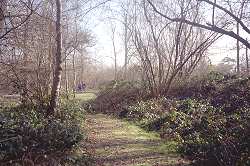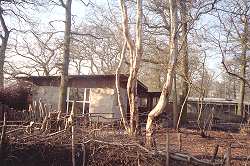What makes Hill Holt Wood so successful?

Summary
Social enterprises – organisations that achieve social and environmental aims primarily by trading – have an important role in a sustainable and socially inclusive economy. Forest Research studied how Hill Holt Wood in Lincolnshire has become a community woodland and social enterprise based on sustainable principles.
Key findings
- Holistic approach – the site focuses on people and communities, management of the environment and the creation of a sustainable business
- A model for social woodland enterprise – elements of Hill Holt Wood could be adopted elsewhere as a model for rural development and diversification
- Attractive community – people live and work in the wood, so it attracts people (especially women) who may not usually venture out alone
- Support – policy-makers must decide how these organisations can be supported (e.g. grant schemes)
- Local decision-making – commitment from the community and staff provides the momentum for success and greater involvement in strategic local decision-making
- Woodland advantage – A woodland setting has distinct advantages: seemingly less crowded, calming and therapeutic for children with behavioural difficulties or special needs and scope for a variety of activities (coppicing, charcoal manufacture, woodcraft and recreation)
- Monitoring – assessments should cover ecological, social and economic impacts, in particular the effect of vocational training on young people excluded from mainstream education
Our involvement
Forest Research’s insights came from a series of interviews with the woodland owners, staff, members of the local community and key staff from outside organisations that contract work to Hill Holt Wood.
Reports and publications
- Hill Holt Wood: Social Enterprise and Community Woodland (PDF-2195K)
- Bringing together ideas of social enterprise, education and community woodland: the hill holt wood approach.
Scottish Forestry 59: 7-14.
- Tackling youth disaffection through woodland vocational training.
Quarterly Journal of Forestry 99: 125-130.
Funding & partners

Commissioned and funded by Forest Commission England.
Status
Completed 2004.
Contact
Liz O’Brien


